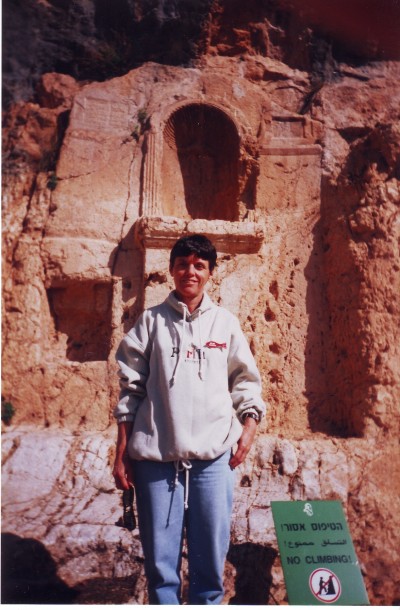
All this week we’re looking at the early part of Genesis. The book of Genesis, following on from Adam and Eve taking into account the second half Genesis 4, verses 16-24, through to Chapter 5.
This is not a well known part of the early history of man kind after the creation of man and man’s fall (sin), but it does reveal a great deal about the development of human kind in this early period.
Having been in Olympic ministry since 1984, I like to illustrate these early Genesis sections like we would a famous Olympians. Take for example Gold Medallist Dawn Fraser who won Olympic Gold in the same 100 metre event on three consecutive Olympics.
However that is not the sum total of Dawn Fraser’s life – consider her school days, temperament, growing up, swim coach, her funny side. After her swim career she married, eventually single mum and years later a politician. Yet in many instances, all we might hear of Dawn Fraser is her Olympic efforts.
Only a single aspect is highlighted
So too in the Genesis account, only one single aspect of their life is highlighted. This first article is of Lamech. His background: his father was Methusael (the fourth generation from Cain). Cain had a son named Enoch. Enoch’s son was named Irad. Irad’s son was named Mehujael and his son was Methusadel who was Lamech’s father. That's all we know.
I’ll refer to this as the 'first Enoch' family lineage as there is a different Enoch in Chapter 5. In our society too, we have male babies named after family members. What is more, we know from Chapter 5, that the family line of Enoch had cousins from the family line of Seth and in verse 18 we’re told about another Enoch (the second Enoch), several generations along – explanation of replicate names.
The first Enoch is the son of Cain from Chapter 4. The second Enoch is in Chapter 5 and comes from the line of Seth, a brother of Cain. We know a family with 10 children, the 10th child was born in the same month as the eldest's first baby. Again there is nothing unusual in this Genesis account.
In this early part of Genesis we’re being given a presentation of the family of man. There are a whole bunch of cousins – from the family of the first Enoch, and the other family line is from Seth. This is a story of cousins. We'll look at the first lot of cousins in this first group of articles and later in the week, the second lot of cousins (from Seth’s line).
Big picture
By the end of the week from Genesis 6 there is a multitude of people upon the face of the earth. People lived very long lives. They gave birth to sons and daughters. There was a lot of multiplying. Quite a number of mathematicians over the centuries have calculated the population growth of this initial period to have been phenomenal. If you think the televsion series “Call the midwife” saw a hectic routine, they had nothing on the busy times for the mid wives in this early section of Genesis.
The Bible gives us a glimpse of this, yet focuses in on two family lines that of Cain’s and that of Seth’s. Again, television dramas today still follow this same pattern, focusing in on one particular family while recognising there are many relatives and friends.
The Genesis story therefore in this capsule of time, has a specific purpose, and we’ll look at these in the coming articles this week.
The Genesis Record by Henry Morris published by Baker Book House first published in 1976, on page 154 provides a statistical list of:
1. Year of Birth of each Patriarch
2. Age at Birth o
f Next Patriarch
3. Year of Death.
Morris says of this: “There is no reason to think there are any “gaps” in this record, or that the years are anything other than normal years … The record is perfectly natural and straightforward.”
He says further: “... Adam lived until Lamech (the father of Noah) … and Noah was born only fourteen years after the death of Seth. Most likely, the oldest of the living Patriarchs maintained the primary responsibility for preserving and promulgating God's Word to his contemporaries.”
Morris goes on: “Since both Enoch and Lamech were outlived by their fathers, there were only seven men in the line before Noah who had this responsibility. This probably explains why, in II Peter 2:5, Noah is called 'eighth preacher of righteousness.'”
I have had a consistent interest in this early part of Genesis, and thinking about this recently, I realised my father had a similar interest and I can recall seeing him reading the the pages of this section of the Old Testament. Fathers and sons, not much has changed!


Dr Mark Tronson - a 4 min video
Chairman – Well-Being Australia
Baptist Minister 45 years
- 1984 - Australian cricket team chaplain 17 years (Ret)
- 2001 - Life After Cricket (18 years Ret)
- 2009 - Olympic Ministry Medal – presented by Carl Lewis
- 2019 - The Gutenberg - (ARPA Christian Media premier award)
Gutenberg video - 2min 14sec
Married to Delma for 45 years with 4 children and 6 grand children